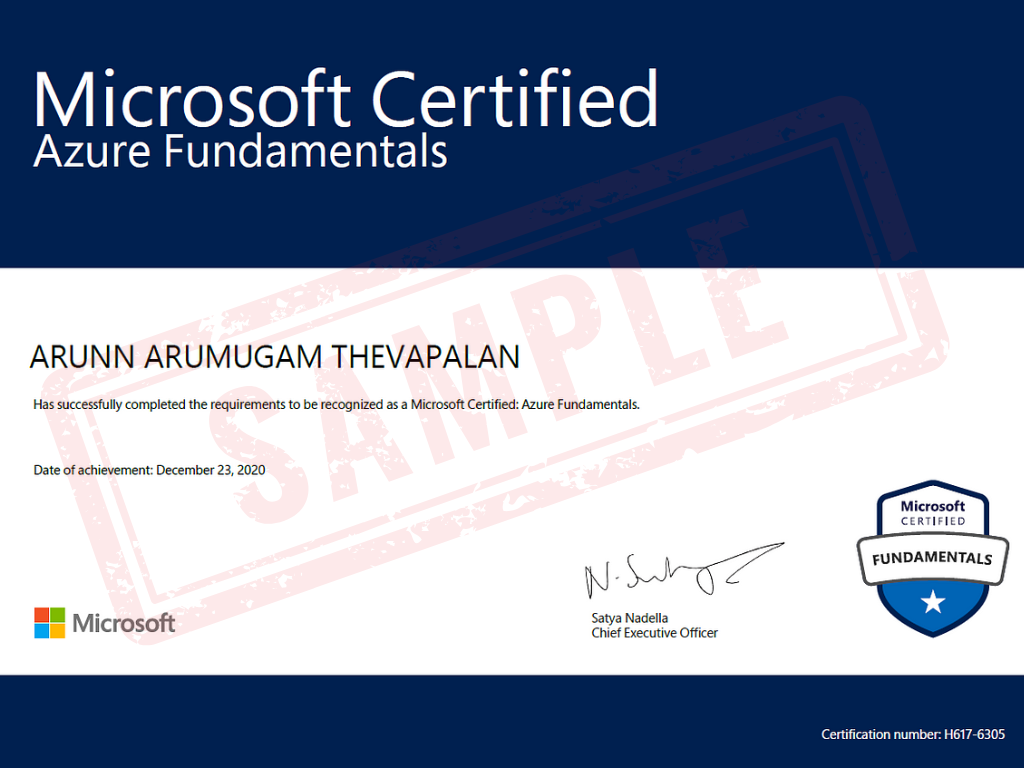
- Explore Courses New ▶
- Data Science ▶
- Investment Banking Program ▶
- Cyber Security Program ▶
- Full Stack Program ▶
- Business Analytics ▶
- Success Stories
- Contact Us
- About Us
- Blog
- Enroll Now
Postgraduate Financial Analysis Program
Build in-demand financial analysis skills with hands-on training from industry professionals through our Postgraduate Financial Analysis Program—and kickstart your high-paying finance career with a 100% job guarantee or your money back. Enroll now and take control of your future in the world of finance.
Program Duration
8 Months
Learning Format
Online Live
Placement Assistance
100% Guaranteed
Trusted By Leading Companies
No Content
Join the Most In-Demand Postgraduate Financial Analysis Program
Master the essential skills required to excel in financial analysis—ranging from financial modeling and valuation to budgeting, forecasting, and data-driven decision-making—through expert-led training and real-world case studies. This 100% Job Guarantee program is designed for fresh graduates and working professionals aiming to launch or accelerate careers in corporate finance, equity research, investment analysis, and financial planning.
Gain hands-on experience with tools like Excel, Power BI, and financial modeling software, and build a deep understanding of financial statements, ratio analysis, and market performance evaluation. Prepare for high-demand roles such as Financial Analyst, Equity Research Associate, Business Analyst, Valuation Consultant, and FP&A Analyst—with personalized career guidance and placement support to help you step confidently into the finance industry.
Industry-Relevant Curriculum
Comprehensive curriculum covering Python, Machine Learning, Deep Learning, NLP, and Big Data technologies.
Job Guarantee
Get placed in a data science role within 6 months of graduation or receive a full refund of your program fee.
Live Online Classes
Learn from top industry experts through interactive live sessions with real-time doubt resolution.
1:1 Mentorship
Personalized guidance from industry mentors to help you navigate your learning journey effectively.
Career Support
Resume building, interview preparation, and exclusive access to job opportunities with top companies.
Capstone Projects
Work on real-world projects to build a strong portfolio that showcases your data science expertise.
Comprehensive Course Curriculum
Our industry-aligned curriculum is designed by experts to help you master the most in-demand Banking & Finance skills and prepare you for a successful career.
Foundations of Financial Analysis
This module introduces core concepts in accounting and financial statements. You’ll learn how to interpret key financial documents such as the balance sheet, income statement, and cash flow statement. It covers fundamental accounting principles, ratio analysis, and vertical/horizontal analysis to assess financial health. You’ll also explore common-size statements and identify red flags in financial reporting. The focus is on developing a strong base in reading and analyzing company performance.
What you'll learn:
- Interpret balance sheet, income statement, and cash flow statements
- Apply ratio analysis to evaluate financial health
- Detect red flags and assess earnings quality
Course Content
Introduction to Accounting Principles (IFRS & GAAP)
Learn the foundational accounting standards and their global applications in financial reporting.
Financial Statements: Balance Sheet, Income Statement, Cash Flow
Understand the structure, purpose, and interconnection of key financial statements.
Ratio Analysis: Liquidity, Profitability, Efficiency, Solvency
Use financial ratios to evaluate a company’s financial stability and operational performance.
Vertical & Horizontal Analysis
Identify trends and structural changes within and across financial statements.
Common Size Statements
Compare companies of different sizes by converting financials into percentages.
Quality of Earnings & Red Flag Identification
Detect manipulations and assess the sustainability of reported earnings.
Corporate Finance & Capital Budgeting
This module covers how businesses make key financial decisions related to investments and capital management. You’ll explore the time value of money, NPV, IRR, and other capital budgeting tools. The module also focuses on cost of capital, WACC, and the trade-offs in capital structure decisions. Working capital optimization and dividend policies are discussed in depth. Forecasting and long-term financial planning wrap up the learning.
What you'll learn:
- Evaluate investment decisions using NPV and IRR
- Calculate WACC and understand capital structure choices
- Forecast financials and manage working capital effectively
Course Content
Time Value of Money: NPV, IRR, and Payback
Understand how to value future cash flows and assess project viability using standard techniques.
Cost of Capital and WACC
Calculate the cost of equity and debt to determine a firm’s weighted average cost of capital.
Capital Budgeting Techniques
Apply investment appraisal methods to make informed long-term decisions.
Working Capital Management
Learn strategies to efficiently manage receivables, payables, and inventory.
Capital Structure & Dividend Policies
Explore how companies choose between debt and equity and return value to shareholders.
Financial Planning & Forecasting
Project a company’s financial performance using historical data and assumptions.
Investment & Portfolio Analysis
In this module, you’ll explore financial markets, instruments, and investment strategies. You’ll learn to evaluate risk-return tradeoffs and construct diversified portfolios using CAPM. The focus is on valuation of equity and debt securities, including DCF, comparables, and bond pricing models. You’ll also be introduced to derivatives such as options and futures. Real-world investment analysis techniques will be emphasized throughout.
What you'll learn:
- Understand asset classes and financial markets
- Apply equity and bond valuation models
- Build diversified portfolios using risk-return metrics
Course Content
Overview of Financial Markets and Instruments
Gain insights into how capital markets function and the various securities traded.
Risk vs. Return Metrics
Measure the trade-off between potential gain and associated risk in investment decisions.
Portfolio Theory: Diversification, CAPM
Learn to optimize portfolios using risk diversification and the Capital Asset Pricing Model.
Equity Valuation Models: DCF, Multiples
Apply valuation methods like discounted cash flow and comparables to value stocks.
Fixed Income Securities: Bonds, Yields, Duration
Understand bond pricing, interest rate sensitivity, and fixed income returns.
Introduction to Derivatives (Options, Futures)
Learn the basics of financial derivatives and how they are used for speculation and hedging.
Financial Modeling & Excel Tools for Analysts
This hands-on module focuses on building financial models using Excel, enabling you to analyze businesses and conduct valuations. You’ll learn to integrate income statements, balance sheets, and cash flow statements. Tools such as scenario analysis, sensitivity testing, and dashboards will be covered. Best practices in spreadsheet design for modeling are emphasized. You’ll walk away with a practical skillset to build models used by real analysts.
What you'll learn:
- Build integrated financial models in Excel
- Perform DCF, LBO, and comparables valuation
- Create dashboards and run scenario analysis
Course Content
Excel Essentials: Functions, Charts, Pivot Tables
Master Excel features used in financial analysis, including advanced formulas and data summarization.
Building Integrated Financial Statements
Link the income statement, balance sheet, and cash flow in a dynamic Excel model
Valuation Modeling: DCF, LBO, Comparables
Create structured valuation models commonly used in investment banking and private equity.
Scenario & Sensitivity Analysis
Evaluate the financial impact of changes in assumptions or business conditions.
Excel Dashboards & Data Visualization
Present financial insights through compelling charts, graphs, and summary tables.
Best Practices in Financial Modeling
Learn structure, error-checking, and formatting standards to build reliable models.
Quantitative Methods & Risk Management
This module equips you with statistical and quantitative techniques to analyze financial data and manage risk. You’ll explore descriptive/inferential statistics, regression, and time-series forecasting. Key financial risk metrics like VaR, beta, and standard deviation are covered. You’ll understand different types of financial risk and how regulations like Basel and SEBI shape risk frameworks. Emphasis is placed on using data to make informed, risk-adjusted decisions.
What you'll learn:
- Use statistics and regression for financial analysis
- Forecast trends with time-series techniques
- Measure and manage financial and regulatory risks
Course Content
Descriptive & Inferential Statistics for Finance
Use statistical tools to summarize, interpret, and infer conclusions from financial data.
Regression Analysis
Examine relationships between variables to support data-driven decision-making.
Time Series Forecasting (ARIMA)
Model and predict future financial data based on historical patterns
Risk Metrics: VaR, Beta, Standard Deviation
Measure and quantify different types of financial risk.
Financial Risk Types: Market, Credit, Operational
Understand and differentiate between major financial risk categories.
Regulatory Compliance: Basel Norms, SEBI Guidelines
Learn about international and Indian regulatory frameworks for risk control.
Capstone Project & Industry Application
The final module brings together all your learnings into a practical, real-world financial analysis project. You’ll apply your skills to a full case study involving financial modeling, valuation, and reporting. Industry-specific scenarios from banking, investment, or corporate finance will be explored. You’ll also build presentation skills and receive feedback from peers and mentors. This module ensures you’re career-ready with hands-on experience and a polished portfolio.
What you'll learn:
- Solve real-world financial cases from various industries
- Deliver end-to-end financial analysis and valuation
- Strengthen resume and interview skills for job readiness
Course Content
Industry Case Studies
Analyze real-world scenarios and apply financial tools in industry-specific contexts.
End-to-End Financial Analysis Project
Complete a full financial model, valuation, and strategic recommendation on a real company.
Report Writing & Presentation Skills
Learn to craft and present professional-grade financial reports and investment theses.
Peer Review & Faculty Feedback
Receive constructive evaluation and iterative guidance on your work.
Career Preparation: Interview Readiness, Resume Building
Build job market readiness with resume enhancement and mock interview sessions.
📊 Your Financial Analysis Learning Journey
Foundations
Accounting Principles, Financial Statements & Ratio Analysis
Corporate Finance
Capital Budgeting, Cost of Capital & Financial Planning
Investment Analysis
Markets Overview, Valuation Models & Portfolio Theory
Financial Modeling
Excel Skills, Valuation, Scenario & Sensitivity Analysis
Quantitative Methods
Statistics, Risk Metrics & Regulatory Compliance
Capstone Project
Industry Cases, Financial Reports & Career Preparation
📊 Your Financial Analysis Journey
📘 Foundations of Financial Analysis
Accounting principles, financial statements, and ratio analysis
💰 Corporate Finance Essentials
Capital budgeting, cost of capital, and financial planning fundamentals
📈 Investment & Valuation Techniques
Market overview, valuation models, and portfolio theory basics
💻 Financial Modeling Skills
Excel-based models, scenario analysis, and forecasting techniques
📊 Quantitative Methods & Risk
Statistical analysis, risk metrics, and regulatory frameworks
🎓 Capstone Project
Real-world financial analysis case study and report preparation
🧠 Soft Skills & Career Prep
Communication, resume building, LinkedIn optimization, and interview tips
🚀 Placement & Support
Mock interviews, career mentoring, and job placement assistance
What role does a Postgraduate Financial Analysis Professional play?
Financial Analyst
Analyze financial statements and prepare reports to support business decision-making.
Corporate Finance Associate
Assist in budgeting, forecasting, and capital structure analysis for organizations.
Investment Analyst
Evaluate investment opportunities, conduct valuation, and monitor portfolio performance.
Risk Analyst
Identify and assess financial risks using quantitative methods and risk management tools.
Financial Modelling Specialist
Build and maintain Excel models for forecasting, valuation, and scenario analysis.
Credit Analyst
Assess creditworthiness of individuals or organizations and provide recommendations.
Portfolio Analyst
Monitor investment portfolios and provide insights to optimize asset allocation.
Compliance Analyst
Ensure financial operations comply with regulatory standards and internal policies.
Data Analyst (Finance)
Use data analytics to extract insights and support financial planning and strategy.
Master 25+ Essential Skills to Become a Job-Ready Financial Analysis Professional
Work Hands-On With the Most Powerful Tools in Financial Analysis
Financial Modelling
Valuation Techniques
Investment Analysis
Portfolio Management
Financial Reporting
Data Analysis Tools
Corporate Finance
Presentation Skills

Tableau
Power BI
Communication Skills
Apply Skills in Real-World Industry Projects
M&A Deal Analysis – Reliance–Future Group
Conduct a comprehensive deal study, including valuation, synergy estimation, and deal structure breakdown.
Tools Used: Excel, PowerPoint, Financial Databases Skills: M&A Analysis, Synergy Valuation, Deal Structuring Sector: Retail, ConglomeratesEquity Research Report – Tata Motors
Perform an in-depth equity research report, covering company financials, ratio analysis, competitor benchmarking, and investment recommendations.
Tools Used: Excel, Bloomberg Terminal, PowerPoint Skills: Financial Statement Analysis, Ratio Analysis, Investment Research Sector: Automotive, ManufacturingFinancial Modelling – Startup Valuation for Ola Cabs
Build a detailed financial model forecasting revenues, costs, and cash flows to estimate the valuation of Ola Cabs for a potential funding round.
Tools Used: Excel, Valuation Software Skills: Financial Modelling, Discounted Cash Flow (DCF), Sensitivity Analysis Sector: Technology, TransportationPortfolio Management Simulation
Create and manage a simulated investment portfolio balancing risk and return across different asset classes and sectors.
Tools Used: Excel, Portfolio Simulators Skills: Asset Allocation, Risk Management, Performance Measurement Sector: Financial Services, Capital MarketsCredit Risk Analysis – ICICI Bank Loan Portfolio
Analyze the credit risk of a loan portfolio by assessing borrower creditworthiness, default probabilities, and risk mitigation strategies.
Tools Used: Excel, Credit Risk Models Skills: Credit Risk Assessment, Probability of Default, Risk Mitigation Sector: Banking, Financial ServicesBudgeting & Forecasting – Infosys Annual Budget
Prepare a detailed budgeting and forecasting report for Infosys’s next fiscal year, including variance analysis and scenario planning.
Tools Used: Excel, Power BI Skills: Budget Preparation, Forecasting, Scenario Analysis Sector: IT Services, ConsultingCorporate Finance Case Study – Capital Structure Optimization for Mahindra & Mahindra
Evaluate and recommend an optimal capital structure by analyzing debt vs equity financing options and cost of capital.
Tools Used: Excel, Financial Calculators Skills: Capital Structure Analysis, Cost of Capital, Financing Decisions Sector: Automotive, ManufacturingFinancial Reporting & Compliance – HDFC Bank Annual Report Review
Review and analyze HDFC Bank’s annual report focusing on accounting policies, compliance with financial regulations, and key financial disclosures.
Tools Used: Excel, Regulatory Frameworks Skills: Financial Reporting, Regulatory Compliance, Analytical Review Sector: Banking, Financial ServicesOur Hiring Partners




Career Services to Get You Hired
Dedicated career support to transform your skills into a successful data science career.
🎓 Earn Your Industry-Endorsed PG Certification


Hear from Our Alumni
Real stories of career growth through our Certified Investment Banking Operations Professional program.

Amit Rao
Back Office Executive → Operations Analyst
"This course helped me understand global trade settlements and back-end investment operations, landing me an analyst role in 4 months."

Meera Joshi
Fresher → Investment Banking Ops Associate
"With no prior finance experience, the hands-on training and support helped me get placed at a global bank’s IB operations desk."

Rajat Nanda
MIS Analyst → Trade Operations Specialist
"The clarity on securities lifecycle and reconciliations made me job-ready. I transitioned to a top trade desk within 3 months."

Shruti Deshmukh
Accounts Assistant → Fund Operations Executive
"Every module was practical and relevant. I now handle fund reconciliation and reporting for one of India’s leading AMCs."

Harsh Sethi
B.Com Graduate → IB Ops Analyst at JP Morgan
"From resume building to mock interviews, the support was amazing. I cracked IB Ops at JP Morgan in just one attempt."
- Course details
- Support
- Placement Assistance
- Payment Options
FAQs: Postgraduate Financial Analysis Program
Q. What is this program about?
It is a comprehensive program that trains you in financial reporting, valuation, equity research, ratio analysis, Excel modeling, and real-world financial decision making.
Q. Who is eligible for this program? +
Q. What tools and skills will I learn? +
Q. Will I get guidance and mentorship? +
Q. What happens if I miss a session? +
Q. What job roles can I expect? +
Q. Do you offer placement support? +
Q. What is the fee structure? +
Q. Is there a refund policy? +
Ready to Transform Your Career?
Join thousands of successful professionals who have advanced their careers
with BookMyLearning










